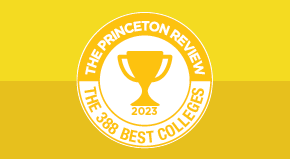Adapted from Paying for College, 2021 Edition by Kalman A. Chany / © 2020 The Princeton Review / Published by Penguin Random House

1. Start researching aid possibilities as soon as possible.
The competition for aid increases when the economy is weak. Those who plan ahead for the aid process will do much better than those who procrastinate and miss deadlines.
2. Improve your aid eligibility.
For example, if you have lost your job, avoid dipping into your retirement plan. In addition to the likely early distribution penalties and additional income taxes, the higher income will reduce your aid eligibility.
3. Apply for financial aid no matter what.
Applying by the priority deadlines, even if you think you won’t qualify, will help you if your finances take a turn for the worst. Some schools will only accept requests for reconsideration due to a decline in income from those students who filed for aid on time – even if they were turned down initially.
Read More: How Does Financial Aid Work?
4. Don't rule out any school as being too expensive.
Many colleges—especially the private ones—have increased their aid budgets to attract applicants whose families are now more price-resistant given the state of the economy. Have a financial aid back-up plan, such as applying to a public institution in your home state, or any school where the student can live at home instead of paying for room and board.
5. Pay less for a four-year degree.
You can save on costs if the student attends a community college for two years and then transfers to a pricier school for his or her remaining two years. However, be sure that the college to which the student plans to transfer will accept the credits from the community college.
6. Take as many AP courses as possible, and prep well for AP exams.
High scores on AP exams can help you save on college tuition. Many colleges award course credits for them, which can reduce the amount you need to pay.
7. Apply strategically to colleges.
If you exceed the school’s admission criteria, you are much more likely to get a better aid package than a marginal applicant. Increasing standardized test scores is a simple way to make your application more competitive.
Read More: Find Your Dream College
8. Be realistic about how much debt you can incur.
Take into account starting salary information amongst grads from your chosen school, or in your planned career path.
9. Pursue federal loans first, if you have to borrow.
Avoid private loans at all costs.
10. Request additional aid if your circumstances change.
But expect that the college may require considerable supporting documentation.
11. Plan for the various education tax benefits you can claim.
After all, a dollar you can save on your taxes is worth the same as getting an additional dollar in grant or scholarship aid.
12. Don’t put tuition on a credit card.
This debt is more expensive than ever, given the recent changes to interest rates and other fees that many card issuers are now charging. You also want to be sure you avoid maxing out on your borrowing limit, just in case you need to use the card to pay for an unexpected emergency.
Looking for strategic college advice?
Get one-on-one help from former Ivy League and top tier admission officers. Our College Admission Counselors will help you find, apply, and get accepted to your dream school.
Read More
Explore Colleges For You
Connect with our featured colleges to find schools that both match your interests and are looking for students like you.
Get Started on Athletic Scholarships & Recruiting!
Join athletes who were discovered, recruited & often received scholarships after connecting with NCSA's 42,000 strong network of coaches.
Best 388 Colleges
154,000 students rate everything from their professors to their campus social scene.



